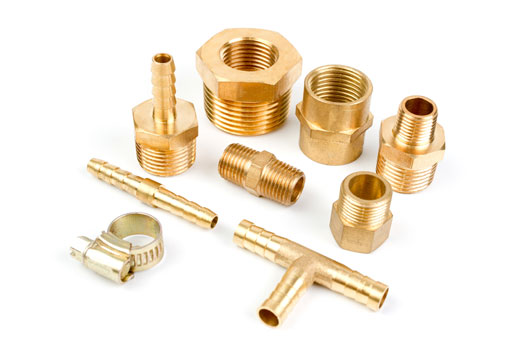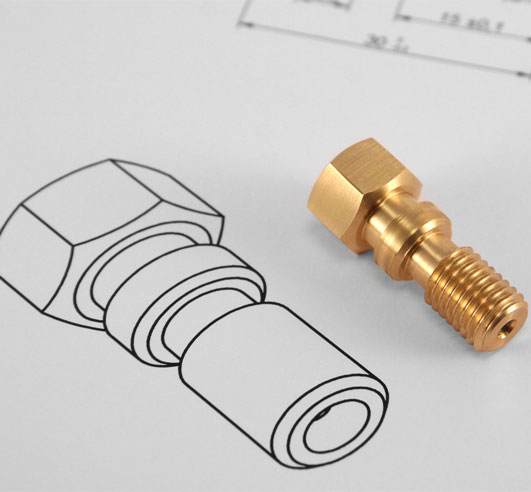Over the years, Aluminum CNC machining and brass die casting have evolved as two of the most indispensable processes in the manufacturing industry. The combination of these techniques allows companies to produce highly precise and complex components with excellent mechanical properties and surface finishes. This blog post will explore the benefits, applications, and best practices for aluminum CNC machining and brass die casting to help manufacturers achieve superior results.
Aluminum CNC Machining
Aluminum is a lightweight, yet strong and corrosion-resistant material that is widely used across various industries, such as aerospace, automotive, and electronics. CNC machining is a popular method for producing aluminum components due to its precision, efficiency, and flexibility. Let's dive deeper into its advantages and applications.
Advantages of Aluminum CNC Machining
1. Higher Precision:CNC machines follow a digital template to create parts with great accuracy, ensuring that each piece meets exact specifications.
2. Complex Geometries:With the help of advanced CAD and CAM software, CNC machines can cut intricate shapes out of aluminum with ease.
3. Rapid Prototyping:CNC machining allows for quick production of prototypes, enabling designers and engineers to test and refine their designs efficiently.
4. Scalability:CNC machines can produce small runs of custom components as easily as large-scale production runs, making it a cost-effective solution for varying production needs.
Applications of Aluminum CNC Machining
Some common examples of aluminum CNC machining include:
Aircraft components: Lightweight aluminum parts, such as wings, fuselage components, and engine parts, are essential for maintaining aircraft performance and fuel efficiency.
Automotive parts: Aluminum components, such as engine blocks, transmission housings, and wheel rims, contribute to lighter, more fuel-efficient vehicles.
Electronics: Aluminum CNC machining is used to produce heat sinks, enclosures, and other components for electronic devices.
Brass Die Casting
Brass die casting involves forcing molten brass into a die or mold to create accurately dimensioned components. Due to brass* unique properties, such as high strength, corrosion resistance, and excellent electrical conductivity, die-cast brass components are widely used in various industries. Let*s explore the benefits and applications of brass die casting.
Advantages of Brass Die Casting
1. High-Volume Production:The die casting process can produce large quantities of brass components quickly, making it ideal for mass production applications.
2. Consistent Quality:The use of precise molds ensures uniformity and consistency in the final products.
3. Lower Tooling Costs:Brass die casting molds can be used for a longer time compared to other casting methods, reducing overall tooling costs.
4. Excellent Surface Finish:Due to the high pressure involved in the process, brass die castings often have excellent surface finishes, which reduces the need for secondary operations, such as polishing or grinding.
Applications of Brass Die Casting
Common applications for brass die castings include:
Plumbing fixtures: Brass offers great corrosion resistance and durability, making it ideal for plumbing fixtures, such as faucets and valves.
Automotive components: Die-cast brass components, such as radiators, throttle bodies, and bearings, are often used in vehicles for their strength and wear resistance.
Electronics: Brass die castings are used for electrical connectors, switches, and housings due to their excellent electrical conductivity and corrosion resistance.
Best Practices for Aluminum CNC Machining and Brass Die Casting
Achieving high-quality results in aluminum CNC machining and brass die casting requires careful planning and skillful execution. Following best practices ensures the highest level of precision and efficiency.
1. Design Optimization:Work closely with your design team to ensure the design is suitable for CNC machining or die casting processes, considering factors such as part geometry, tolerances, and draft angles.
2. Material Selection:Choose the right type of aluminum or brass alloy based on the performance requirements of the final product.
3. Process Control:Monitor and control the process parameters, such as cutting speed, feed rate, temperature, and pressure, to achieve optimal results and minimize defects.
4. Quality Inspection:Implement thorough quality control measures, including in-process inspections and final inspections, to ensure that every component meets the required specifications.
By understanding the advantages and applications of aluminum CNC machining and brass die casting, manufacturers can make informed decisions and optimize their processes for the best possible outcomes. Incorporating these techniques into production workflows, coupled with careful consideration of design specifications, material selection, and process control, will result in high-quality components that meet or exceed industry standards. With the growing demand for lightweight, durable, and corrosion-resistant metal parts, aluminum CNC machining and brass die casting continue to prove themselves as invaluable processes in modern manufacturing.
aluminum cnc machining brass die casting







